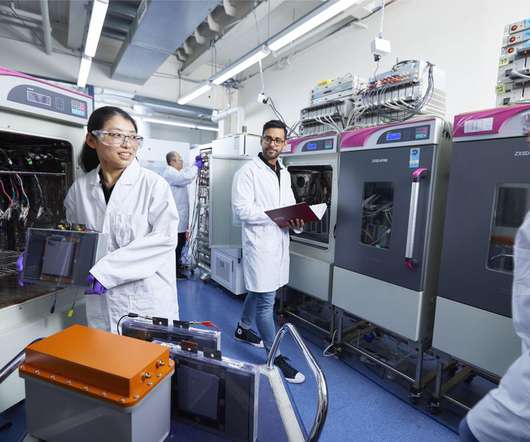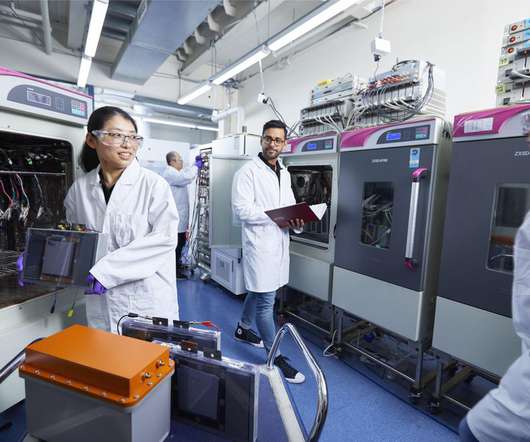Faraday Institution to award up to £55M to five consortia for energy storage research
Green Car Congress
SEPTEMBER 5, 2019
The new projects in four focus areas join the existing Faraday Institution research projects that collectively aim to deliver the organisation’s mission to accelerate breakthroughs in energy storage technologies to benefit the UK in the global race to electrification. Next generation lithium ion cathode materials.















Let's personalize your content